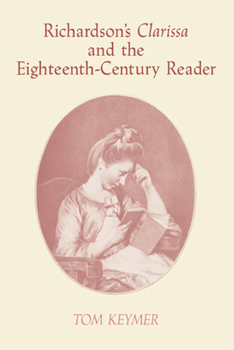Richardson's 'Clarissa' and the Eighteenth-Century Reader
(Part of the Cambridge Studies in Eighteenth-Century English Literature and Thought Series)
Written as a collection of letters in which very different accounts of the action are unsupervised by sustained authorial comment, Richardson's novel Clarissa offers an extreme example of the capacity of narrative to give the reader final responsibility for resolving or construing meaning. It is paradoxical then that its author was a writer committed to avowedly didactic goals. Tom Keymer counters the tendency of recent critics to suggest that Clarissa's...
Format:Paperback
Language:English
ISBN:0521604400
ISBN13:9780521604406
Release Date:June 2004
Publisher:Cambridge University Press
Length:296 Pages
Weight:0.96 lbs.
Dimensions:0.7" x 6.0" x 9.0"
Customer Reviews
0 rating





